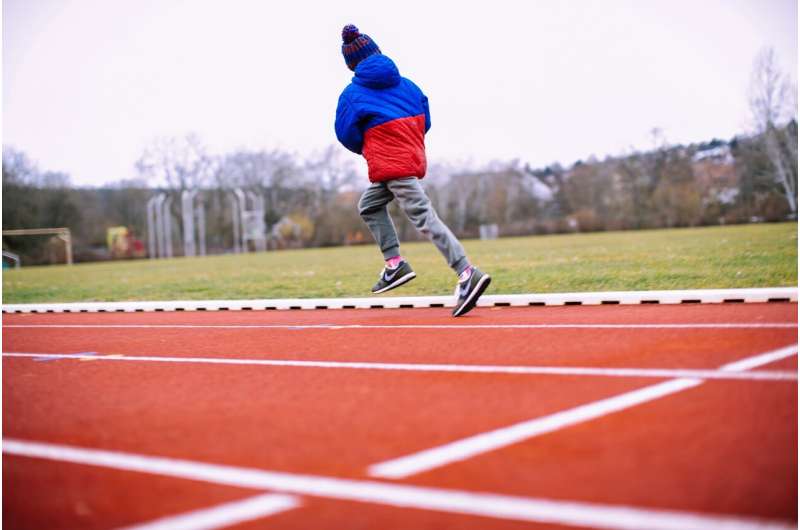This article has been reviewed according to Science X's editorial process and policies. Editors have highlighted the following attributes while ensuring the content's credibility:
fact-checked
peer-reviewed publication
trusted source
proofread
Fittest pupils performed best in cognitive tasks, study showed

Sports scientists at Nottingham Trent University found that on average the fittest youngsters aged 12–13 showed better attention, perception, memory and higher-level decision making and complex thinking when challenged than their less-fit peers.
As part of the study, the team was aiming to understand how a one-hour PE lesson—specifically football—might help to improve pupils' performance in the classroom.
Using a series of cognitive tests before and after PE, the researchers found that working memory—the retention of small amounts of information—improved by about 10% in pupils who spent more time performing moderate to vigorous activity.
During the study, however, they also observed that irrespective of the PE lesson the fittest children—measured by the distance covered during a shuttle running test on a separate day—showed superior ability overall across all of the cognitive function tests.
Their performance in attention, perception, memory and executive function tasks was on average between 10% and 20% greater than their less-fit peers, achieving accuracy with faster response times.
The tests—undertaken by 76 pupils—measured concentration, the retention and detection of information, higher-level decision making and complex thinking, which the researchers argue are all crucial for the classroom. The study is published in the journal Frontiers in Psychology.
"We found that fitter children performed particularly well across a range of measures considered important for academic achievement and performance in school," said lead researcher Luke Gilbert from Nottingham Trent University's School of Science and Technology.
He said, "Our study demonstrates the importance of fitness in young people. Furthermore, as PE is the only opportunity for many young people to undertake moderate-to-vigorous physical activity and develop their fitness, it further highlights the value and importance of PE."
Nottingham Trent University researcher Dr. Simon Cooper added, "This was the first study to look specifically at how a PE lesson might affect cognition, which is important considering that cognition affects the ability to learn and perform at school.
"The time allocated for PE in schools is sometimes reduced in favor of more academic subjects and this could be counterproductive for enhancing the achievement of pupils.
"While evidence shows physical activity positively affects cognitive function in young people, we know that the intensity, duration and type of activity are very important. For future work we'd like to understand more about how different types of PE might affect cognition, along with how PE could be optimized in terms of the potential cognitive benefits."
More information: Luke M. Gilbert et al, Effects of a games-based physical education lesson on cognitive function in adolescents, Frontiers in Psychology (2023). DOI: 10.3389/fpsyg.2023.1098861





















